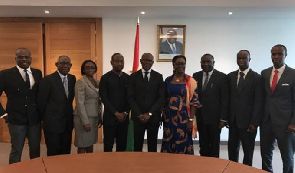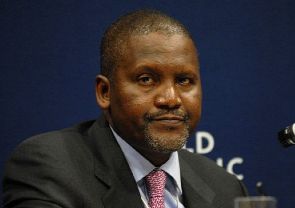The anticipated merger between mobile telephony service providers Airtel and Tigo received a big boost with the inauguration of the National Communication Authority (NCA) board of directors which is expected to give approval to the deal.
While the two companies completed merger talks earlier this year, the finalisaton of the deal was subject to the approval of NCA, the industry regulator, which has been without a board since the Akufo-Addo government took office.
The board, chaired by Kwaku Sakyi-Addo, the former telecoms industry lobbyist who headed the Ghana Chamber of Telecoms, is expected to, as a matter of urgency, look into the merger deal which has left the two companies increasingly frustrated over the lack of action from the regulator’s perspective.
Speaking at the inauguration of the 8-member board, Communications Minister Mrs. Ursula Owusu-Erkuful, expressed confidence in the expertise of the board members.
“I am confident your various backgrounds and expertise in private, business and public administration will help enrich the strategic decision making process so as to guide the management of the NCA to decide on strategic initiatives in the sector to meet the challenges in creating a robust and secure information and knowledge society in the country,” she said.
The board is comprised of persons with backgrounds varying from telecommunication policy advocacy, broadcasting, among other areas of expertise in communication technology.
The membership of the board include its acting Director-General, Joseph Anokye, Kwabena Adu-Boahene, Bernard Aidoo Forson, Philip Kwame Asare Ayesu, Paul Adom-Otchere, David Gyewu and Susan-Barbara Adjorkor Boye Kumapley.
While acquisitions in the country’s mobile telecoms space are nothing new, a merger of this magnitude between well-established operators presents a test case for the industry regulator and the industry as well.
A country of 27 million people, Ghana has six mobile operators, a number of 4G operators and countless ancillary telecom operators in what has been described as a saturated market where companies barely break even.
Industry experts have continuously argued that the only way players within the space can make profit is to consolidate and the announcement by Airtel and Tigo is likely to pave the way for other similar consolidations in the not too distant future.
How the NCA approaches the Airtel/Tigo merger will most likely serve as a standard and how the new entity performs will also signal how fast similarly struggling mobile network operators seek to consolidate their operations.
Merger talks
According to the announcement made earlier this year, per the agreement, Airtel and Millicom, operators of Tigo, would have equal ownership and governance rights in the combined entity.
It is estimated that the combined business would serve nearly 10 million customers, of which 5.6 million are data customers.
The resultant network operator would cover more than 80 percent of Ghana’s population with high speed data, providing the widest 3G coverage across the country, and would have revenues close to US$ 300 million, making it one of the largest communications companies in the country.
The combined business is expected to provide customers with a major boost in both rural and urban network coverage, translating into better voice quality, high speed data services and reinforced network stability and resilience.
With the combined fibre footprint and increased number of data centres, enterprise customers including both large corporations and SMEs are expected to have access to a diverse portfolio of solutions.
Mobile Financial Services will also be enhanced with combined agent networks and platforms, the companies said.








